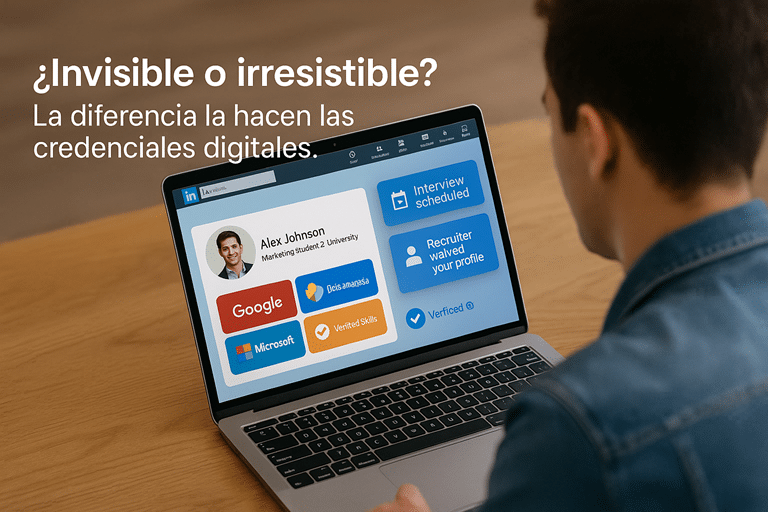here is no doubt that we are in a moment in which skills change rapidly and education must adapt to meet the demands of the labor market, thus the need arises for new ways to certify lasting skills in Higher Education. Microcredentials, in combination with blockchain technology, are presented as an innovative solution to this challenge in the field of higher education.
What are Micro-credentials?
The microcredentials They are smaller units of learning that focus on specific skills. Unlike the University degrees, which can cover a wide range of subjects, microcredentials focus on specific competencies and are designed to be more flexible and agile.

The importance of lasting skills
In a constantly evolving work environment, durable skills, also known as soft skills or transversal competencies, are increasingly valued by employers. These skills include the ability to communicate effectively, critical thinking, problem solving, teamwork, and adaptability. However, certifying these skills in a traditional manner can be challenging due to their subjective nature.

Blockchain technology offers an innovative solution to certify lasting skills securely and transparently. By using blockchain, a decentralized and tamper-proof system, educational institutions can guarantee the authenticity of issued microcredentials. Each microcredential is immutably recorded on the blockchain, providing a verifiable record of the student’s achievements.
Advantages of Micro-credentials with blockchain
- Portability: Students can carry their microcredentials with them throughout their professional career, regardless of the educational institutions or employers they interact with.
- Verifiability: Employers can easily verify the authenticity of microcredentials via blockchain, increasing confidence in candidates’ declared skills.
- Continuous update: Because microcredentials focus on specific skills, students can constantly update their competencies to stay relevant in a changing job market.
- Personalization: Microcredentials allow students to personalize their learning based on their interests and career goals, acquiring only the skills they need.
Practical implementation
To successfully implement blockchain microcredentials in higher education, institutions must partner with expert platforms in the management and issuance of this type of digital recognition. Furthermore, it is essential to establish quality and transparency standards in the issuance and verification of microcredentials to guarantee their validity and universal acceptance.
Blockchain microcredentials represent a powerful tool for certifying lasting skills in higher education. By providing a flexible, verifiable and student-centered way to recognize learning and competencies, these technologies are transforming the way we think about education and employability in the 21st century.
Create your first Micro-credential template in minutes and at no cost.
Subscribe to blog here and receive all our content







